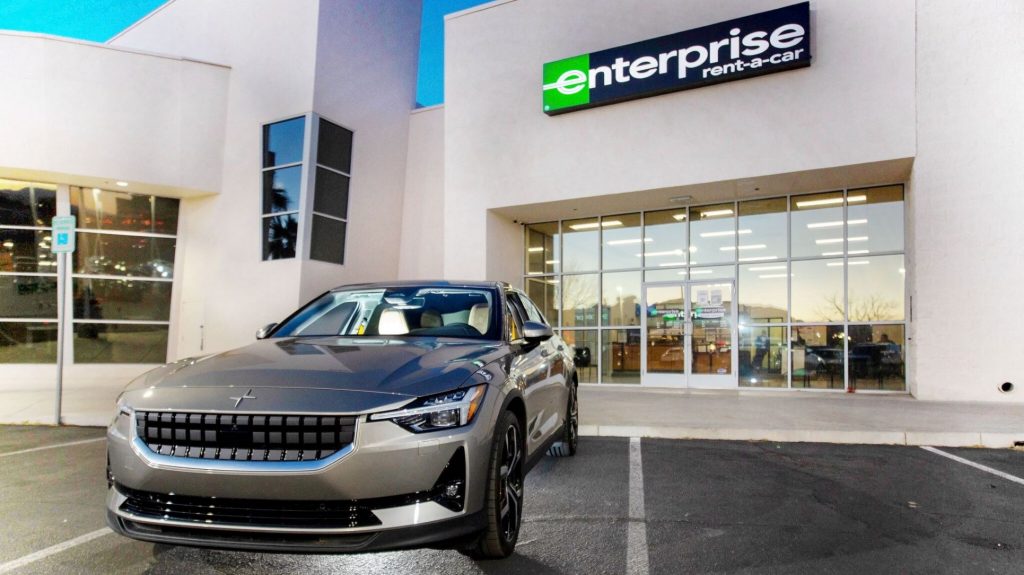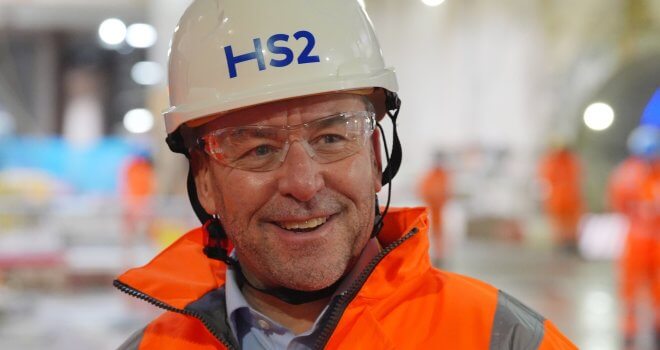Rental Car Giants Embark On Electric After Pandemic Bonanza

The $100 billion Western rental car industry, flush with cash from a profitable pandemic, is gradually getting its electric show on the road, and Chinese-made vehicles are poised to play a starring role.
The electric transition could see car fleets, long dominated by famed marques from the United States and Europe, increasingly switch towards Asian automakers, according to a European executive.
“Historically, European and American manufacturers had an edge, but the shift towards electric is reshuffling the cards,” said Olivier Baldassari, group chief countries and operations officer at rental giant Europcar.
He said electric cars from Chinese and Asian makers were comparable to Western models in terms of quality, citing Great Wall Motor’s Ora line, but generally cost less.
Even small savings are significant in the vast rental industry, which buys millions of new cars a year – a tenth of all new cars in the United States alone – and provides a leading indicator of wider auto trends in society.
Companies in the sector have long resisted a rush to electrify because of weak demand for electric vehicles (EVs) among customers worried about being stranded out of power.
Yet several analysts said now is the best time to start as companies have fortified their coffers with bumper profits during a pandemic that emptied public transit and airports, and led to more holidaying within driving distance.
In the United States, rental car companies received record monthly revenue of $1,320 per vehicle in 2021, according to the American Car Rental Association. That compares to around $1,000 pre-pandemic.
“In the past, companies have kind of stuck their head in the sand,” said Nick Mountfield, associate partner at OC&C Strategy Consultants, which advises rental car companies, said about electrification. “We’re now starting to see people say that they’ll have to do something about and put in place plans.”
WATCH YOUR SPEED
Hertz was an early mover last October when it announced the planned purchase of 100,000 vehicles from U.S. trailblazer Tesla, upping the pressure on rivals to spell out transition plans.
French-based Europcar, meanwhile, pledged to make 20% of its fleet electric or low-emission hybrid by 2024, from 3% now, which means it will need to buy up to 70,000 cleaner vehicles in the coming two years if it restocks its fleet to the 350,000 vehicles it owned pre-pandemic.
Rental companies sold off their fleets as demand plummeted at the start of the pandemic and have struggled to regain volumes amid a global shortage of semiconductors that has hampered vehicle production.
Baldassari said Europcar was increasingly sourcing EVs from Great Wall Motors, SAIC Motor and Polestar, which is owned by China’s Geely and Volvo Cars, though it was also buying from traditional partners, including Renault and Stellantis.
The company’s China strategy might shift, however, if German carmaker Volkswagen AG manages to close its offer to buy the company in the second quarter.
Industry players are running at different speeds, with each making their own calculations based on their markets.
In the United States, where many customers prefer SUV and pickup models that have yet to be electrified and public charging infrastructure lags much of Asia and Europe, Enterprise Holdings is striking a more cautious tone.
Electrifying just a quarter of Enterprise’s fleet at Orlando airport – its largest consumer rental location – would require the same amount of daily electricity as is needed to power more than 1,000 homes, said Enterprise’s assistant vice president of innovation, Chris Haffenreffer.
Haffenreffer said the group currently had several thousand EVs in North America, including from Tesla, Nissan, Hyundai, Kia and Polestar. While the company said it has conversations with all global automakers, it has no immediate plans to boost that share.
“At a high level, we want to let our consumers guide us in terms of what they’re looking for,” he added. “Many car rental companies have historically taken that wait-and-see approach because we are still in the early phases of the transition.”
FOOTHOLD IN THE WEST
The varied pace of change, and the timeline for vast fleet overhauls means gasoline-powered vehicles are expected to remain the bulk of purchases for some years to come. Global automakers’ transition plans as a whole would see electric vehicles make up at least 40% of their sales by 2040.
Yet eventually the shift could prove far-reaching for the fortunes of Chinese in carmakers in Europe, a crowded, competitive auto market dominated by storied brands that has proved elusive for them to crack in the past.
In years gone by, they have contended with a perception that China, associated with cheap mass-production, could not compete on quality. Yet such arguments are challenged in a new reality that sees top Western carmakers like BMW and Tesla now produce cars in the country, which is a technology powerhouse and the world’s biggest auto market.
Great Wall Motor, one of Europcar’s suppliers, is expected to launch its Ora Cat compact electric car in Europe this year priced at around 20,000 euros ($22,260) with a range of around 250 miles (400 km), joining a growing number of Chinese EV makers trying their luck on the continent.
Chinese manufacturers using the rental channel to establish brand awareness and increase sales volumes would follow a playbook Kia and Hyundai used in the 1990s to gain a foothold in Western markets, said Mountfield at OC&C Strategy.
(Reporting by Tina Bellon in Austin, Texas; Editing by Pravin Char)




